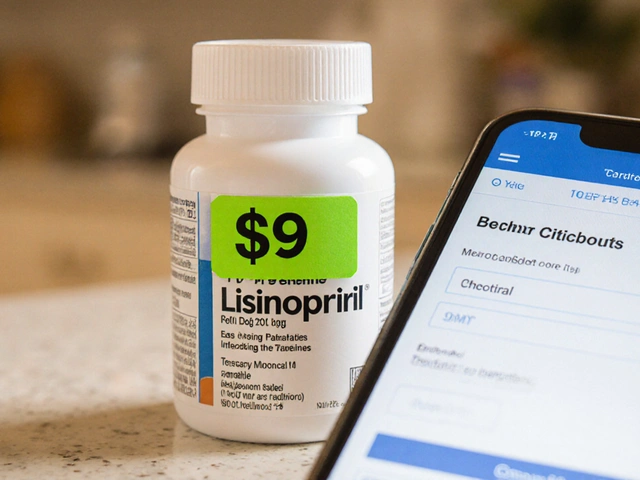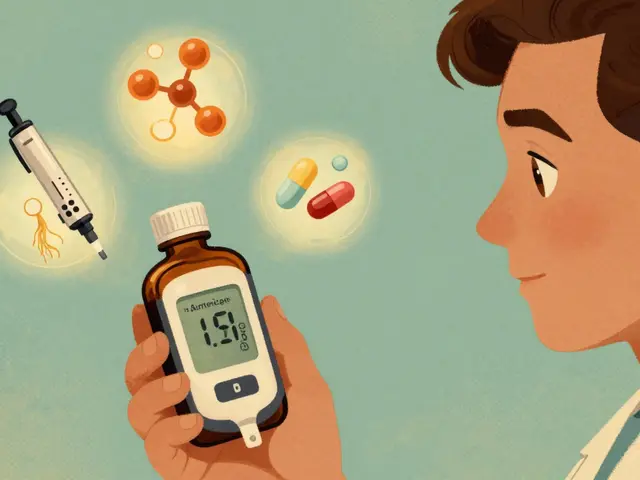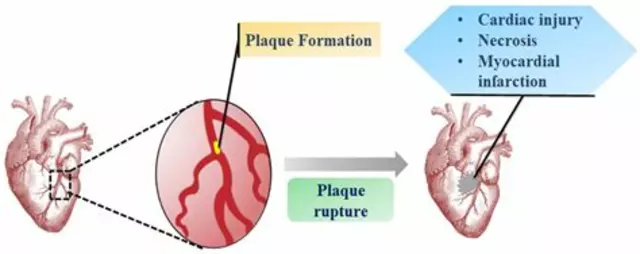The Vital Role of Regular Cholesterol Screenings for Heart Health
Cholesterol often gets a bad rap, but it's a vital substance your body needs to build cells and make vitamins. However, when its levels get too high, it raises the risk of heart disease. Recognizing this, it's important to keep an eye on your cholesterol numbers through regular screenings.
Ignoring cholesterol levels does not make the problem disappear. High cholesterol is often called the 'silent killer' because it can creep up without noticeable symptoms. Regular screenings act as an early warning system, catching potential problems before they develop into serious conditions.
The benefits of these screenings are clear. They offer a snapshot of your health, guiding lifestyle choices and medical treatments to help manage and lower cholesterol levels. This proactive approach can significantly reduce the risk of heart attacks and other cardiovascular diseases.
Maintaining cholesterol levels isn't just about tests—it's also about making smart everyday choices. Eating a balanced diet, staying active, and avoiding excessive consumption of unhealthy fats can make a world of difference. With the right information and habits, keeping your heart healthy becomes much more manageable.
- Understanding Cholesterol
- The Health Risks of High Cholesterol
- Benefits of Regular Screenings
- Simple Tips for Managing Cholesterol Levels
Understanding Cholesterol
Cholesterol is a type of fat found in your blood. Your body needs some cholesterol to build healthy cells, but high levels of cholesterol can increase your risk of heart disease. There are two main types of cholesterol, often referred to as 'good' and 'bad' cholesterol.
Low-density lipoprotein (LDL), or 'bad' cholesterol, contributes to fatty buildups in arteries (atherosclerosis). This condition narrows the arteries and increases the risk of heart attack, stroke, and peripheral artery disease. On the other hand, high-density lipoprotein (HDL), or 'good' cholesterol, helps remove LDL cholesterol from the arteries.
Triglycerides, a third component often measured alongside cholesterol levels, are another type of fat found in the blood. High triglyceride levels can also raise the risk of coronary artery disease, especially in women.
The liver produces all the cholesterol your body needs. However, cholesterol also enters your body through the foods you eat, particularly animal products like meat, dairy, and eggs. While dietary cholesterol has less impact on blood cholesterol levels than once thought, foods high in saturated and trans fats can contribute to higher levels of LDL cholesterol.
"High cholesterol itself does not cause symptoms; so many people are unaware their cholesterol level is too high," says the American Heart Association. "It’s important to have your cholesterol checked regularly and work with your doctor on a plan to lower it if needed."
Knowing your numbers is crucial. Medical guidelines generally suggest that adults have their cholesterol levels checked every four to six years, starting at age 20. Those with cardiovascular disease or other risk factors, like diabetes, may need more frequent screenings.
Understanding the readings from these tests is key. A total cholesterol level of less than 200 mg/dL is considered healthy, while an LDL level less than 100 mg/dL and an HDL level around 60 mg/dL are ideal. However, targets can vary, so it's best to discuss your specific situation with a healthcare provider.
Stay informed about cholesterol and make lifestyle choices that support your heart health. Eating a diet rich in fruits, vegetables, whole grains, and lean proteins, getting regular exercise, avoiding tobacco, and limiting alcohol intake are all effective strategies for maintaining healthy cholesterol levels.
The Health Risks of High Cholesterol
High cholesterol isn't something to take lightly. When cholesterol levels in the blood are too high, it can lead to several serious health problems. One of the most common issues is coronary heart disease. This happens when plaque, which consists of cholesterol, fat, and other substances, builds up in the arteries that supply blood to the heart. The buildup narrows the arteries and makes it harder for blood to flow through them.
This narrowing of the arteries can cause chest pain, known as angina, and put you at higher risk for a heart attack. A heart attack occurs when a part of the heart muscle doesn't get enough blood. The more severe the blockage, the more damage can be done to the heart muscle. In severe cases, heart failure can also occur when the heart can't pump blood efficiently enough to meet the body's needs.
Stroke is another significant risk associated with high cholesterol levels. Just as plaque can block blood flow to the heart, it can also block arteries that carry blood to the brain. This can lead to an ischemic stroke, which is the most common type of stroke. The symptoms and severity of a stroke depend on which part of the brain is affected.
Peripheral arterial disease (PAD) is another health issue linked to high cholesterol. In PAD, narrowed arteries reduce blood flow to the limbs, usually the legs. This can cause pain and numbness, and in severe cases, it might lead to infections or even the need for limb amputation.
High cholesterol can also impact other areas of the body. For example, it can lead to chronic kidney disease as the blood vessels in the kidneys can become damaged. It also places additional strain on the brain and nervous system.
It's not just older adults who need to worry about high cholesterol. ***Children and teenagers*** can also be affected. Conditions like familial hypercholesterolemia, which is a genetic disorder, can result in very high levels of LDL cholesterol even in young people. This raises their risk for heart disease at a young age. That's why screening and early intervention are important for them too.
According to the American Heart Association, "High cholesterol contributes to around 4.4 million deaths worldwide each year."
Knowing your cholesterol numbers is one of the first steps to reducing these risks. The sooner high cholesterol is detected, the easier it is to control with lifestyle changes, medications, or a combination of both. Regular check-ups and screenings are not just a one-time thing but an ongoing part of maintaining heart health. Paying attention to these levels allows you to take timely actions that could prevent life-threatening complications down the line.
Benefits of Regular Screenings
It cannot be overstated how valuable regular cholesterol screenings are for maintaining good health. These screenings can catch potential issues early, serving as a crucial first step in preventing more serious conditions like heart disease and stroke. According to the American Heart Association, nearly 38 percent of American adults have high cholesterol levels. Unfortunately, a large portion of these individuals are unaware of their condition because high cholesterol often doesn't present noticeable symptoms until it's too late. Regular screenings help bridge this gap.
One of the primary benefits of routine cholesterol checks is early detection. Identifying elevated cholesterol levels early allows healthcare providers to recommend lifestyle changes and treatments before the problem escalates. This proactive approach can lower the risk of heart disease, which remains the leading cause of death in the United States. Early detection also empowers individuals, giving them the knowledge and tools to take control of their health.
Regular cholesterol screenings can also guide personalized healthcare. By understanding your particular cholesterol profile, your doctor can better tailor advice and treatments specifically for you. Whether it's adjusting your diet, recommending more exercise, or possibly prescribing medication, knowing your exact cholesterol levels helps your healthcare provider make more informed decisions. As Dr. Lisa Matzer, a cardiologist, notes,
"Personalized care based on cholesterol screenings dramatically improves patient outcomes. These tests provide essential insights that can guide effective intervention strategies."
Another significant benefit is the peace of mind that comes with regular health monitoring. Knowing your cholesterol levels can alleviate anxiety about your heart health. Knowledge is power, and being aware of your cholesterol numbers enables you to make more informed lifestyle choices. For example, if you know your LDL (bad cholesterol) is creeping up, you might decide to cut back on saturated fats and increase your intake of fruits and vegetables.
Moreover, consistent screenings contribute to long-term health monitoring and record-keeping. These records are invaluable for both you and your healthcare provider, as they can track changes over time and adjust care plans accordingly. This long-term health data can also highlight trends, flagging potential issues before they become critical. Even subtle changes in cholesterol levels can signal the need for preventative measures, which can be life-saving.
Cholesterol screenings typically include a lipid panel that measures LDL, HDL (good cholesterol), and triglycerides. These comprehensive tests paint a full picture of your cardiovascular health. Understanding the balance between these different types of cholesterol is crucial. High levels of LDL can lead to plaque buildup in arteries, while high levels of HDL are beneficial as they help remove LDL from the bloodstream. Monitoring triglycerides is also important, as high levels can increase the risk of coronary artery disease. The detailed insights from these tests make them an indispensable tool in preventive healthcare.
In summary, regular cholesterol screenings provide numerous benefits, from early detection of potential issues to personalized healthcare guidance and peace of mind. They are a fundamental part of a proactive approach to health, particularly in managing and preventing heart disease. By integrating these screenings into your routine healthcare plan, you equip yourself with the knowledge needed to make better health choices and maintain your heart's health.
Simple Tips for Managing Cholesterol Levels
It’s crucial to understand that managing cholesterol levels can drastically improve your overall health and longevity. High cholesterol often leads to heart diseases, which are among the leading causes of death. Let’s delve into some straightforward yet effective strategies that anyone can incorporate into their daily lives to keep their cholesterol in check.
Eat Heart-Healthy Foods: A diet rich in fruits, vegetables, whole grains, and lean proteins can make a significant difference. Soluble fiber, found in foods like oatmeal, beans, and apples, helps reduce the absorption of cholesterol into your bloodstream. Cutting down on saturated and trans fats is equally important. Opt for healthier fats like those found in olive oil, avocados, and nuts. For instance, eating nuts regularly can reduce LDL cholesterol by 5%.
Get More Active: Incorporating at least 30 minutes of physical activity into your daily routine can boost your good HDL cholesterol. Activities don't have to be intense; even a brisk walk, bike ride, or gardening can be beneficial. Consistency is key, so find an activity you enjoy and make it part of your daily life. Regular physical activity can help you maintain a healthy weight, which in turn aids in lowering LDL cholesterol and raising HDL cholesterol.
Quit Smoking: If you smoke, quitting could be one of the best things you do for your cholesterol levels. Within just a few weeks of giving up cigarettes, you can see improvements in your HDL cholesterol levels. This change lowers your risk of heart disease significantly. The American Heart Association notes that just one year after quitting smoking, your risk of heart disease is half that of a smoker.
Limit Alcohol Consumption: While moderate alcohol consumption can potentially raise HDL cholesterol, too much alcohol can lead to serious health issues, including high blood pressure, heart failure, and strokes. The key is moderation: this means up to one drink per day for women and up to two for men.
“Reducing cholesterol requires a combination of diet, lifestyle changes, and sometimes medications. It's about making healthier choices each day,” says Dr. William Brady, a leading cardiologist.
Maintain a Healthy Weight: Carrying extra weight, especially around your midsection, can increase cholesterol levels. Losing even a small amount of weight can help reduce total cholesterol, LDL cholesterol, and triglycerides while increasing HDL cholesterol. Simple changes like reducing portion sizes and choosing healthier snacks can contribute to significant weight loss over time.
Take Medications If Prescribed: Sometimes lifestyle changes alone aren’t enough, and medication becomes necessary. Statins and other cholesterol-lowering drugs can be effective, but they should be taken as directed by your healthcare provider. It's important to continue healthy habits even if you're on medication.
By incorporating these tips, you can make meaningful strides in managing your cholesterol levels. This, in turn, can help you lead a healthier life, reducing your risk of heart disease and other related health problems. Regular check-ups and cholesterol screenings remain crucial so your doctor can track your progress and make any necessary adjustments to your plan. Start small, stay committed, and remember that each step towards healthier habits counts.







8 Comments
Scott Richardson
May 14, 2024 at 22:48
Look, if you don’t get screened you’re basically signing your own death warrant. America’s been beating the drum on this for years, so stop ignoring it.
Laurie Princiotto
May 14, 2024 at 22:53
Honestly, I think all this hype is just a way to sell pills 😒.
Justin Atkins
May 14, 2024 at 23:01
While the article correctly emphasizes the importance of periodic lipid profiling, it omits a discussion of emerging biomarkers such as apolipoprotein B, which some clinicians argue provide a more nuanced risk stratification. Moreover, the recommendation to screen every four to six years fails to account for socioeconomic disparities that affect access to preventive care. In practice, a tailored approach based on individual risk factors-family history, diabetes, hypertension-yields superior outcomes. Therefore, clinicians should integrate both traditional panels and newer assays to optimize patient management. In short, screening is crucial, but the protocol must be individualized.
June Wx
May 14, 2024 at 23:10
Ugh, another lecture about cholesterol? 🙄 I know the basics, but why does everyone act like it’s a life‑or‑death drama? Just eat a salad once a week and you’re fine, right?
kristina b
May 15, 2024 at 00:16
It is an undeniable truth, etched in the annals of medical progress, that the vigilant monitoring of serum lipids stands as a sentinel against the inexorable march of cardiovascular demise.
The very notion that a mere blood draw, conducted with periodic regularity, can unveil the clandestine ascent of atherogenic particles should inspire both humility and awe in the layperson.
To contemplate a world wherein the silent killer prowls unchecked, bereft of surveillance, is to envision a landscape marred by needless tragedy.
Each elevated low‑density lipoprotein measurement is not merely a number, but a portent of endothelial injury, plaque formation, and eventual occlusion.
Conversely, a robust high‑density lipoprotein profile whispers of resilience, of the body's innate capacity to efflux cholesterol from the arterial wall.
Yet, statistics reveal that a staggering thirty‑eight percent of adults harbor detrimental lipid profiles, oft unbeknownst to themselves.
This disquieting prevalence underscores the imperative for systematic, accessible screenings.
Moreover, the intergenerational transmission of dyslipidemia, exemplified by familial hypercholesterolemia, mandates early detection even in the pediatric cohort.
The integration of lifestyle modification-dietary refinement, aerobic exertion, cessation of tobacco-augments the therapeutic armamentarium, yet these measures flourish most when guided by concrete biochemical feedback.
Pharmacologic interventions, such as statins, have proven their mettle, yet their optimal deployment hinges upon precise risk stratification afforded by lipid panels.
In the grand tapestry of preventive medicine, regular cholesterol assessments occupy a central, irreplaceable thread.
They empower clinicians to tailor interventions, mitigate risk, and ultimately curtail mortality.
Let us, therefore, champion the cause of routine screening with ardor, for in doing so we honor the very essence of proactive health stewardship.
The heart, after all, deserves nothing less than vigilant guardianship.
Ida Sakina
May 15, 2024 at 00:50
Indeed this discourse elevates the moral imperative of preventive care while shunning complacency
Amreesh Tyagi
May 15, 2024 at 01:06
but if you keep blowing up cholesterol like the end of the world people will just ignore the advice and live their lives the way they want without any fear
Brianna Valido
May 15, 2024 at 01:40
Great reminder to get checked! 🎉 Regular screenings keep us on track and give us peace of mind 😊 Stay healthy, friends!